The ICISA INSIDER
Newsletter of the International Credit Insurance & Surety Association (ICISA)
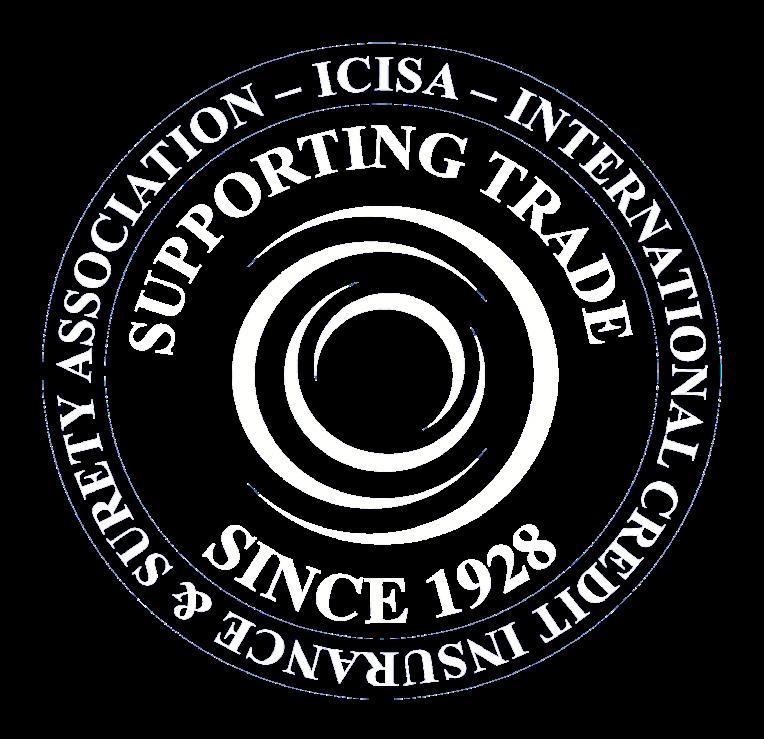
CONTENT
FOREWORD
COLUMN



4 | Embracing volatility
Column by Menso Kwint
ICISA UPDATES
6 | Update from Asia Committee chair
7 | Surety Week - Event report
INSIGHTS
8 | Climate change risks and credit insurers: anticipation is key Insight by Alexis Garatti
18 | Environmental, Social & Governance Factors in AM Best’s Credit Ratings
Insight by Mahesh Mistry

INTERVIEW
14 | Member in the spotlight: S2C Interview with Antoine Ninu and Andre Straja
ANNOUNCEMENTS
1 |
ICISA INSIDER | How to get a free Subscription?
like to be added to the distribution list of The ICISA Insider, please send a message to secretariat@icisa.org Editorial Information | For suggestions and announcements, please contact: Raluca Ezaru (editor) +31 (0)20 625 4115 Raluca.Ezaru@icisa.org
The
If you would
Volume 18 | April 2023
Disclaimer
All articles in the ICISA Insider represent solely the opinions of the individual authors, not ICISA, unless otherwise stated. Original articles appearing in the Insider may not be reprinted without the express permission of the author and ICISA. When citing articles, please refer to the title of the article, the author, and the relevant edition of the Insider, including a full url to the article page.

| 2 April 2023 | The ICISA INSIDER | Foreword
Foreword
Dear reader,
Before you, you have a new edition of our Insider. This edition comes in times of uncertainty. Just when stock markets were looking to recover some of the lost ground of 2022, a potential banking meltdown has found its way onto the front pages of the newspapers. The start-up world was shook by the demise of Silicon Valley Bank and Credit Suisse, a once undoubted pillar of the Swiss economy, needed an emergency rescue operation.
The fearful tremble, the wise take precautions. That is exactly what the trade credit and surety industry has been doing. It is imperative for the world economy that trade credit insurers and sureties (with the valuable backing of the reinsurance community) keep their cool and their lines open wherever possible. And that means, let’s get back to business.
That is what this Insider is all about: business. Our business, specifically! A column written by Menso Kwint of Lombard Insurance of South Africa discusses the growing phenomenon we face in the shape of volatility and finding the opportunities among the challenges that it poses. Menso certainly provides food for thought, and room to be hopeful for the future. Elsewhere, our technical committees continue to work hard for the good of the industry and our clients. You can see for yourself in the recent report from the chair of our Asia Committee about their meeting in Bangkok, Thailand – their first in-person meeting in three years.

You will also see that surety is more than meets the eye in the update on S2C’s new Milan office. A location that promises sustainable working and a strong business environment. Warning: the article might make you want to apply to work there!
Please also don’t miss the articles on topics that continue to have bearing on our world. ESG is all about leaving a liveable world for future generations. This is hardly a topic that we can shy away from, as Alexis Garatti of Allianz Trade clearly shows. Elsewhere, Mahesh Mistry of AM Best looks at identifying the impact of ESG factors on a (re)insurer’s credit ratings.
I wish you an enriching read.
 Richard
Richard
3 | The ICISA INSIDER | April 2023
Foreword |
Embracing volatility
Author: Menso Kwint, Insurety
Is volatility good or bad? I don’t know for sure. I do, however, believe that it is with us to stay, and that it absolutely brings the opportunity for innovation and positive change in ourselves and our businesses.

Through 2018 and 2019 our business organised a series of internally focused talks by a futurist called Graham Codrington. He ran us through the ideas of change being exponential and the Fourth Industrial Revolution (the trend towards automation and data exchange in technologies and processes). He spoke about a shift in global energy use; the Internet of Things (things that are embedded with tech for the purpose of connecting and exchanging data with other devices and systems over the internet – e.g., smart watches), work-from-home, and augmented reality technologies (a technology that combines virtual information with the real world – e.g., Google Glass). Pretty high-flying stuff, but basically that the world is changing quicker, and that change is going to be impacting us more and more.
If volatility is the amount of uncertainty or risk related to the size of potential change, then the last few years speak for themselves in terms of personal and professional volatility. The first quarter of 2023 has already seen two multibillion dollar default events in the shape of Americanas and Silicon Valley Bank. In our South African trade credit business, we are currently seeing overdue notifications tick up markedly and maybe what’s most surprising is that we’re not surprised by it!
My thinking behind this article was not to talk about surviving volatility, but that it should not necessarily be seen as a bad thing. If volatility is perennial, how does one embrace it and look for opportunity through it? How does one thrive in the world we find ourselves. Basically, repeating Gandalf’s words to Frodo in the Lord of the Rings, when in response to Frodo complaining that he wished not to be living in difficult times, Gandalf replied: “All we have to decide is what to do with the time that is given us.”
| 4 April 2023 | The ICISA INSIDER | Column
Column
Our products in credit and surety specifically mitigate credit and performance risk. Which through volatility, become even more important instruments. Volatility helps validate or confirm the need for what we do in the industries in which we operate. However, it is not just risk that has ramped up exponentially. The means through which that risk can be understood and mitigated have also improved drastically. Here are a few things we – in our organisation – have found beneficial:
Data gathering tools seem to have improved to the point where the technology is no longer a limitation. The challenges now seem to be more about how information is gathered ethically and securely, with protections in place for personal privacy.
Efficiencies improved by automation, decision tools and RPA (Robotic Process Automation) are astounding. In the past these technologies seemed complex and out of reach – to me at least.
Analytics and reporting have been exponentially enhanced by AI (Artificial Intelligence) – this is not a ChatGPT complied document, in case you wondered…
Work-from-home benefits have meant flexible working environments are more the norm and bring further time efficiencies.
The development of skills to be multi-disciplinary and cross functional mean people can hopefully react quicker and more positively to a changing environment. Understanding the importance of resilience in a tough climate.
To conclude, thank you to for the nomination I received to write this article and for the platform to say a few words. To my mind the volatility we see around us is hard on people and businesses without a doubt. However, it is also a driving opportunity to get to our clients, show value, bridge risk, and build sustainability though our products and people and with the better means at our disposal.
Each author of the Insider Column nominates the next writer.
In the Summer edition of the Insider Magazine, Sascha Dear from R+V Re accepted his nomination as a columnist.
Don’t miss it!
5 | The ICISA INSIDER | April 2023 ICISA updates | April 2022 | The ICISA INSIDER
Column |
Update committee chairs: ICISA Asia Committee meeting in Bangkok
Author: Bart Poublon, Chair of Asia Committee for 2019 - 2023

The ICISA Asia Committee meeting was held from 8 to 10 March, 2023 in the Millenium Hilton Hotel in Bangkok. It was our first Asia committee since the Covid pandemic started and as such we were a bit anxious to see how many people would be brave enough to venture to Thailand.
We were excited to see that we had a record turnout for the event with 33 delegates. We believe this is a testament to the excellent events we have had in the past and the strong network that was built previously. We had a good mix of participants from the trade credit, surety and re-insurance industry. People were flying in mainly from Asia and Europe. The event started on the Wednesday evening with our traditional cocktail reception, which was held at the Hilton rooftop bar from where we had a fantastic view over Bangkok.
Richard Wulff spoke some words to welcome all delegates and soon thereafter, the city of Bangkok treated us with a fantastic fireworks spectacle. This got the evening off to a good start and everyone had a great time networking with old acquaintances and new members, sharing food and drinks.
We had a very full schedule on Thursday. As Chair of the ICISA Asia Committee, I welcomed all delegates to the event. The day started with a presentation by Bernard Aw. Bernard is the Chief Economist of Coface in Asia. He gave an insightful presentation on the global and Asia economic outlook. This was a good prelude for the traditional tour de table where attendees present their view on the industry and current market environment.
After an excellent lunch, Stan Wu from China Taiping gave us an in-depth presentation on the China surety market, a topic that many attendees requested us to cover in detail for some time. Up next was Ahmed Madkour from Recovery Advisors who talked us through recoveries in emerging markets and gave us tips on how to spot potential fraud cases. Last speakers of the day were Neil Munroe and Ingrid Biehl from BIIA who presented us the key trends that will shape the future of the information industry. In the evening, we headed to a local restaurant called The Never Ending Summer where we enjoyed a delightful dinner. After dinner most of the participants gathered again at the rooftop bar of our hotel to enjoy a nightcap.
The second day of the meeting started with an engaging workshop by Vanessa Lim from Clyde&Co on fraud cases, accompanied with some interesting practical case studies. After that, Richard Wulff presented an overview of the advocacy activities ICISA is currently involved in for its members and Awang Sulystio talked about the results of the latest Industry LGD project. At the end of the meeting, Bart thanked Sylvie for her efforts as a Vice Chair of the committee, and with unanimous applause, passed the chairmanship of the Asia Committee to Hugh Burke of Coface with Jerry San of Swiss Re Corporate Solutions at his side as vice-chair.
The feedback we received from all participants was unanimously that the Asia committee was again a big success. We are already looking forward to next year to welcome again many of our members in another exciting location in Asia!

April 2023 | The ICISA INSIDER
| ICISA Updates 6 |
ICISA Surety Week 2023 - event report
Author: Raluca Ezaru, ICISA

The second edition of ICISA “Surety Week” was successfully concluded on 16 February after a week packed with events. A year ago, when we launched this campaign, we a aimed to organize, “A worldwide celebration and exploration of the Surety sector”, underlying the role of the Surety and creating a dialogue between stakeholders within and outside the sector.
The second edition was an effort to highlight again the great work of ICISA members and the incredible professionals in our industry to a wider audience. Most importantly, we continued to grow awareness of the sector with diverse audiences to build greater understanding of the products, the sector and the key developments underway in our industry.
Throughout the week we heard from experts from sureties who shared their thoughts on challenges and new developments in the sector. But we also extended our invitation as speakers to banks, consultants, private equities, brokers as well as users of bonds who could discuss their perspective on our industry and the issues affecting it. Our speakers shared their views on topics as diverse as regulatory changes and sustainability, as well as many other important topics facing the industry today. Once again, we managed to see a genuine “buzz” created around this campaign, as well as the opening of new conversations within our community and the wider audience attending the sessions.
Throughout the week, we welcomed slightly over 3500 attendees across our 8 virtual sessions! These attendees were drawn from sureties themselves, but also huge numbers from brokers, servicers, banks, regulators and users of Surety products.
During this second edition of ICISA Surety Week, we saw again that there is real interest in the Surety sector, and the desire for an open dialogue between different parties. Now that Surety Week has been established as a must-see event, we look forward to continuing this conversation for the years to come.
One of ICISA’s core functions is to support spreading knowledge and best practices in the Credit Insurance and Surety sectors. Surety Week fulfilled this goal and we look forward to hosting it again next year. Trade Credit Insurance week too will return later in the year and we are excited to bring you even more great events in 2023 and beyond. We hope to see you there – online or in person!
Want to see the recordings of the panels organised during this edition of Surety Week?
We made these sessions available on our website.
7 | The ICISA INSIDER | April 2023
ICISA Updates |
Climate change risks and credit insurers: anticipation is key

 Author: Alexis Garatti, Allianz Trade
Author: Alexis Garatti, Allianz Trade
Credit insurers play a crucial role in facilitating B2B exchanges at national and international levels. By offering insurance products that cover the possible default of clients, they enable their policyholders (ranging from small businesses to multinational corporations) to release essential resources for long-term investment and preserve their future competitiveness. Without such protection, these businesses would have to allocate a significant portion of their resources to absorb any unforeseen shocks from non-payment. In this regard, credit insurers also have a role to play in fighting climate change, which is accompanied with a significant amount of uncertainty. Recent global-level events such as the Covid-19 crisis and the Russo-Ukrainian conflict are the perfect illustration of this trend towards an increase in the frequency of extreme risks. They highlight two kinds of events which can affect firms and their financial stability: climate change and (geo)political events. In the first case, deforestation, whether voluntary or involuntary, increases the transmission or transmissibility of viruses from wild species to humans. In the second case, the transition of economies plays a crucial strategic role before and after the trigger of war. An indirect climate-related shock, physical or transitional, is involved in each case.
| 8 April 2023 | The ICISA INSIDER | Insights 8 |
Chart 1. Two main types of Climate Change Risks; Source: Caldecott et al.(2021)
Climate Change and physical risks: Credit insurers should not under-estimate their systemic dimension

Physical risks refer to the risks associated with the physical impacts of climate change, such as extreme weather events, sea level rise, and other forms of natural disasters. In the trade credit insurance industry, physical risks may manifest in various ways, such as disruptions to supply chains, damage to infrastructure and assets, and increased insurance claims due to weather-related events. For example, a trade credit insurer may face physical risks if it provides coverage to companies in areas that are vulnerable to flooding or other weather-related events, which may increase the likelihood of defaults or insolvencies. Additionally, physical risks may lead to higher insurance premiums or reduced coverage for companies that operate in high-risk areas. Generally speaking, as not being a pure P&C type of business, trade credit insurance is being deemed as being relatively and naturally protected against physical risk. Yet recent experience demonstrates the inverse.
In the case of the Covid-19 crisis, we had indeed to deal with a physical risk: health restriction measures have brought most economies to a standstill, with an activity disruption or interruption in some sectors, and required strong state intervention to prevent a multiplication of business failures
that would have ultimately led to a massive increase in unemployment. The physical risk eventually morphed into a systemic risk. States and credit insurers have coordinated their action to ensure the continuity of inter-company debt market in an extremely uncertain context. Those joint efforts have prevented a disproportionate tightening of business financing conditions and has kept inter-company relationships alive at the national and international levels, a necessary condition for allowing an economic rebound. All in all, this transformation of physical risk into systemic risk requires a close monitoring and coordinated reactions between public authorities and credit insurers.
The EIOPA (European Insurance and Occupational Pensions Authority) has acknowledged that natural catastrophes can have a significant impact on the trade credit insurance industry, and that climate change is expected to exacerbate this impact in the future. In a report published in 2019, EIOPA stated that “climate change may lead to an increase in frequency and severity of extreme weather events”, which in turn may have significant implications for the trade credit insurance industry, given the importance of weather-related risks in this sector.
9 | Insights |
April 2023 | The ICISA INSIDER
The EIOPA has called on insurance companies to factor in the potential impact of climate change on their business models and risk assessments, and to develop appropriate strategies to manage these risks. This includes the development of stress testing scenarios that integrate the potential impact of natural catastrophes on their portfolios. In addition, EIOPA has encouraged the development of
innovative insurance solutions to address the impact of climate change on the trade credit insurance industry, such as parametric insurance products that are triggered by specific weather-related events. Allianz Trade is already engaged in this exercise of mapping and estimating the materiality of those climate change risks, both for physical and transition aspects of things.
Climate change and transition risk: credit insurers should aim at anticipating by identifying stranded assets and accompanying companies in their net zero strategy
In the context of climate change, transition risk refers to the financial risks that companies and industries face as they transition to a low-carbon economy. This includes the risks associated with policy and regulatory changes, shifts in consumer preferences, and technological advancements that may impact the value of assets, investments, and business models. In the trade credit insurance industry, transition risks may manifest in various ways, such as the potential for reduced demand for products or services that are carbon-intensive, or the risk of stranded assets that are no longer viable in a low-carbon economy. There may also be risks associated with financing or insuring companies that are not aligned with the goals of the Paris Agreement, or with industries that are likely to face regulatory or reputational challenges due to their carbon footprint.

The Russia – Ukraine crisis offers a good example of a global – size type of transition risk suddenly materializing even if not apparent at first sight. The trigger of the conflict obviously deals with geo-strategic and historical reasons. There is no doubt on this. However, some works operated
by the Integrated Assessment Modelling Consortium offers interesting insights in this regard. Its so-called Shared Socioeconomic Pathways (SSPs), describing five different scenarios of anticipation, more specially includes SSP3, where economic inequality gets worse in the world, leading to “increasing conflicts between regions”. In this uncooperative world, innovations are slow, growth as well and economies remain dependent on fossil energies. This is a world where temperatures increase by +4.5°C at the horizon of 2100. As an economy highly dependent on the export of energy, Russia was confronted with a wave of coordinated actions from the rest of the world post Paris Agreement in 2015 aiming at transitioning away from their dependence on oil and gas. At a global level, major economies are therefore expected to rapidly reduce their dependency on Russia. This is what we could characterize as a phenomenon of stranded asset, i.e. a rapid depletion in the value of Russian capital. This is difficult to judge whether or not this factor has played a significant role in precipitating the Russia – Ukraine.
| 10 April 2023 | The ICISA INSIDER >
> >
ICISA updates | April 2022 | The ICISA INSIDER
Chart 2. SG Climate Transition Risk Index versus S&P500 and its subcomponents (10 = 1/1/2006) Sources: Bloomberg, Allianz Trade
| Insights
However, there is little doubt on the fact that this phenomenon of stranded assets, in a perspective of transition risk, will be a source of political risk in the future. Allianz Trade already integrated ESG factor into its risk country ratings two years ago in order to anticipate such sources of risk at a national level.

Transition risk and stranded assets will also be a key concern for credit insurers when dealing with private companies. In order to estimate the magnitude of transition risk, we propose a methodology based on the utilization of financial market data allowing a forward-looking approach of transition risk for sectors and companies. Entelligent is a data provider specialized on climate. It has created an index called the Entelligent Climate Transition Index (ECTI) that is designed to measure the performance of companies that are better positioned to transition to a low-carbon economy while also managing their exposure to climaterelated risks. The ECTI is intended to be a tool for investors who are looking to incorporate climate considerations into their investment strategies.
The chart 2 shows the relative performance of the different sectors of the S&P 500 versus the so-called SG Climate Transition Risk Index (available on Bloomberg), which is “designed to track the performance of a basket of US stocks selected from the S&P500 in function of companies’ sensitivity to future climate change scenarios as defined in the ECTI”. This is a way to visualize to which extent the market rewards portfolio strategies outweighing companies with credible transition strategies, a way to measure the confidence of the market in this “transition story”. Without any surprise, given the multiplication of extreme events recently, the SG Climate Transition Risk Index has outperformed the rest of the market, except for the Information and Technology Sector.
In order to capture the level of information in this index and get a proxy of expected transition risk across US sectors of the S&P 500 public companies, we estimate the spread at today’s date (March 2023) between the (100 re-based) index of performance for each sector of the S&P and the SG Climate Transition Risk Index. We can consider that this spread represents the risk premium that investors are ready to pay for being protected against the transition risk in the future. Again, without surprise (chart 3), we see that the Energy sector, as well as the Raw Material Sector and the Utilities sector face the largest transition risk and therefore are the most exposed to the phenomenon of stranded asset. More surprisingly, we find the Telecom sector is the worst performer compared with transition –ready companies.
11 | Insights | April 2023 | The ICISA INSIDER > > >
In this case, there is a phenomenon of stranded asset in the sense that ICT companies continue gaining market shares on the Traditional telecom sector. In this respect, the out-performance of the ICT sector can also be associated with resilience in a context of transition, as we have already demonstrated the case that countries with stronger ICT infrastructures suffer in a lesser extend to extreme events such as the Covid . The financial sector including banks is also among the sectors the most exposed to transition risk as they continue supporting companies related to fossil energies. We have yet to observe the fact that a context of
extremely low levels of interest rates between 2006 and today represents an important driver of this under-performance. In this respect, a context of low interest rate is also mirroring a lack of sustainable investment opportunities. All in all, we can also utilize such a market-based approach of transition risk with individual stocks. The relative performance of a certain company’s stock price versus the SG Climate Transition Risk Index can represent an indirect way of estimating its exposure to transition risk in a forward-looking manner.
Conclusion: by contributing to reduce market fragmentation, the Credit Insurance Industry represents a common good in this context of global warming

Through their insurance against the risk of default by buyers, the information they provide on these buyers or country/ sector risks, and their collection activities (recovering unpaid amounts from trades), credit insurers help reduce the fragmentation of markets and help reach structurally higher level of growth by unleashing precautionary savings of companies. From a microeconomic point of view, subscribing to short-term credit insurance preserves cash flow from uncertainties of non-payment, freeing up
resources for long-term investment. Those traditional functions take a much bigger importance in the context of climate change, where fragmentation of markets and uncertainties have significantly increased: identifying companies and countries the most exposed to transition risk and helping all of them finance their transition will be a leitmotiv for Allianz Trade and the whole trade credit industry.
| 12 April 2023 | The ICISA INSIDER > > >
| Insights
Chart 3. Transition Risk Index as the Spread between SGTR Index and S&P500 sector indices (March 2023)
A Guide to Trade Credit Insurance
By the International Credit Insurance & Surety Association
This compact volume is a practical guide for anyone interested in Trade Credit Insurance. The International Credit Insurance & Surety Association (ICISA) presents an approachable but detailed guide written collaboratively by carefully selected industry experts. The guide describes the ‘lifeline’ of the credit insurance product, from the initial application stage to the expiration phase of the policy, including practical use aspects for credit managers. The volume offers compact information on the history of trade, the need for protection against trade credit risks, and solutions offered by credit insurance providers. The focus is on short term credit, including whole turnover policies and single risk policies.

Readership
Suitable for anyone interested in Trade Credit Insurance, from credit managers to policymakers.
Key selling points
• Collaboration of a diverse group of experts from top organisations around the world
• Written in an approachable style, accessible to the non-specialist
• Includes extended glossary of key terminology
• Includes a list of relevant resources for further reading
Content
Foreword; Introduction; Disclaimer; 1.What is trade?; 2. What is trade credit insurance?; 3. Product types; 4. Risk types; 5. Typical set-up of a trade credit insurance contract; 6. Premium, the price for cover; 7. Day-to-day policy management; 8. Buyer risk underwriting in trade credit insurance; 9. Debt collection; 10. Imminent loss and indemnification; 11. Renewal, expiry, termination of a policy; 12. Single risk business; 13. The single risk insurance market: Private and public players; 14. Reinsurance of Trade Credit Insurance; Trade Credit Insurance resources; Glossary of trade credit terminology
About the Author(s) / Editor(s)
The International Credit Insurance & Surety Association (ICISA) brings together the world’s leading companies providing trade credit insurance and surety bonds. ICISA promotes technical excellence, industry innovation and product integrity, as well as addressing business challenges generated by new legislation.
Where to order my copy?
The book can be ordered from Barnes&Noble and Bol.com
13 | The ICISA INSIDER | April 2023
A practical and accessible industry-wide reference on Trade Credit Insurance, written by a team of industry experts.
Member in the spotlight: S2C S.p.A Incorporating sustainability and ESG in new constructions
 An interview with Antoine Ninu and Andre Straja
An interview with Antoine Ninu and Andre Straja
S2C S.p.A. is an Italian insurance company that operates exclusively in the surety market as an alternative to domestic multi-line insurers. S2C has been active since 2010 and has been a member of ICISA since 2016. Early last year, S2C announced the construction of a new headquarters in Milan, a pioneering office building in Italy and Europe, which incorporates sustainability and ESG, and aims to produce more energy than it consumes. Altogether, it is an example of innovative and cutting-edge architecture, under the name of “S2C Tower”. Construction is expected to complete in December of this year.
Antoine Ninu, Executive Director of S2C spoke with the ICISA Insider to elaborate on their ESG and sustainability commitments. Andre Straja, architect at GaS Studio, the competition winning architect for the new building, also gave some details on the project and some of the inspirations behind this design.
Asked about the importance of sustainability for his company, Antoine emphasises that at S2C everyone brings their own contribution to sustainability, according to their roles and responsibilities. He continues: “Sustainability represents for us an essential aspect and an opportunity to characterise and represent the values of our company: ethics, transparency, respect for the environment and for people. The new office building in Milan reflects these values entirely: we decided to obtain the highest certifications of sustainability (which includes LEED, WELL and WIREDSCORE), dedicating a substantial investment”. Antoine continued, saying that:
“this investment for a highly sustainable office building naturally led to the use of photovoltaic panels, geothermal energy, rainwater recovery and reduction of our carbon footprint.”
When it comes to ESG, Antoine reflects on S2C’s role in caring for the environment, but also on their role as a company to create a pleasant and safe workspace for their team: “S2C Tower should be a place where people like to spend their time and where their health is considered and they are respected. For us, this meant receiving the WELL certification, which is a certificate for buildings that sponsor the comfort and the well-being of people and their health. Similarly, the WIREDSCORE certification confirms the digital connectivity of our building.”
| 14 April 2023 | The ICISA INSIDER
| Interview
Speaking of green projects sponsored by S2C, Antoine mentions two large construction projects in Rome which, “contribute to the sustainability through “urban regeneration” and renovation of listed historic buildings”.

Regarding the original request, Andre Straja reflects on the first contact with S2C: “GaS Studio was approached by S2C and invited to a private competition three years ago. The brief was simple: take a small 3 storey building and transform it into a headquarters for a small but growing insurance company. The term “iconic” was used, which at first seemed contradictory given the modest size of the existing conditions. Our proposal consisted in the search for a “big Idea” that combined both corporate and social values expressed in a bold way while taking maximum advantage of Milan’s urban regulations: We proposed what we believe will be the first multi-storey heavy timber column/beam building in Italy. And fortunately, with this idea, we won!
So, what was this winning idea?
“A wooden ship in a glass bottle” with a special message inside: respect and attention for the future of our planet. A faceted glass envelope over a wooden structure entirely visible from the outside. The result is an iconic and recognisable architectural object, unique in its geometry and construction philosophy.”
15 | > > >
Interview | April 2023 | The ICISA INSIDER

16 |
For Andre, attention for the environment is reflected in the structure of the building, together with the technology used and multiple ways to save resources:
“Clearly choosing a predominantly wood structure for a multistorey office building is a bold move, unique in Italy and perhaps the forbearer of future construction for office buildings in Europe. The project integrates Geothermal technology, high efficiency heat pumps and photovoltaic panels as well as a green house allowing increased rainwater permeability. Rain water is also collected for irrigation of green areas located in the Parc, greenhouse, terrace and roof deck. Triple glazing is used throughout for minimum solar gain while preserving maximum transparency.”
The future S2C headquarters has already won one international prize: The Plan Award 2022.
As Andre elaborates: “S2C Tower, has been in the public eye for a relatively short period of time and is currently under construction, and yet has already won a prestigious international prize: The Plan Award 2022 for the future office building category. This prize considered 1200 finalist projects in 20 categories and included noted designers.”
Looking at the future, but also at what ICISA members can do in their own businesses to become more sustainable, Antoine reminds us about the possibility that insurers have, “to speed up some processes which could be an added value for the entire supply chain”.
Certainly a good piece of advice, at a time when we are reminded that the time to act and prevent the worst impacts of climate change is already well upon us.
Catalogue of Credit Insurance Terminology
To order a hard copy, please send an email to secretariat@icisa.org

17 | The ICISA INSIDER | April 2023 > > > | 6
German
The
edition of the catalogue is available. It can be downloaded from the ICISA website at www.icisa.org
17 | April 2023 | The ICISA INSIDER Interview |
Environmental, Social & Governance Factors in AM Best’s Credit Ratings

 Author: Mahesh Mistry, AM Best
Author: Mahesh Mistry, AM Best
ESG—environmental, social and governance—has gained significant traction in recent years, to improve transparency of risks not captured by standard financial metrics so that informed choices can be made by stakeholders. Understanding and integrating ESG principles into strategy is becoming increasingly important for (re)insurers. Whilst there has been strong consideration for ethical and moral values, aspects such as the sustainability and management of climate-related risks are prominent for the insurance industry. Insurers play a unique role in ESG as risk carriers, asset managers and institutional investors, providing protection to individuals and communities.
With limited but developing industry-wide ESG standards in place, market participants may find it overwhelming to fully understand how to implement and disclose ESG practices. AM Best’s view is that ESG factors, when material and relevant, play an important role in the financial strength of a (re)insurance company. Any material or relevant factors have always been considered as part of AM Best’s rating approach. AM Best’s perspective on credit ratings is forward-looking, as we seek to understand all the risks and opportunities that could impact a (re)insurer’s financial strength and creditworthiness. AM Best’s analysis includes identifying the impact of credit factors related to ESG on a (re)insurer’s credit ratings. Certain ESG factors may not impact (re)insurer’s financial strength today but may do so in the future or may become more relevant. ESG factors have the potential to affect—positively or negatively— any of the building blocks in AM Best’s analysis: balance sheet strength, operating performance, business profile, or enterprise risk management.
The impact of ESG factors on financial strength may vary depending on a company’s profile, gross and net exposures, and level of risk transfer, as well as the markets in which it operates. AM Best acknowledges that ESG risks are not the same across industries, which makes sense since risks relevant to one industry may not be relevant to another. Furthermore, even within the insurance industry, different factors may be more relevant to a particular (re)insurer. For example, a large, global reinsurer with material catastrophe exposure will have different ESG considerations than a small life insurer in the midwestern US. Overall, the greatest threats to a (re)insurer’s financial strength are inadequate governance practices and an inability to appropriately manage climate risk. Exhibits 1a, 2b and 3c illustrate that ESG factors are not uniform and that management of these exposures is equally as important as the exposure to these factors.
| 18 April 2023 | The ICISA INSIDER
| Insights > > >
For climate-related risk, there are three main areas of focus for the insurance market: physical, transition and liability related risks. Exhibit 2a and 2b show the importance of climate risk and how the management of this risk can enhance or diminish credit quality over time. Physical risk captures the changing frequency and intensity of weather-related events; transitional risk is associated with transition to a low-carbon economy; and liability risk relates to possible increases


in litigation arising from pollution or contamination, for example. All these factors can impact the creditworthiness of an insurer and affect its financial strength, performance and reputation. However, ESG can also create opportunities for the market, as changes in customer preferences and lifestyles may create new product opportunities.

19 | | 16
Insights | April 2023 | The ICISA INSIDER > > >
Balance sheet strength
Environmental factors are considered a severe threat to the balance sheet strength of property and casualty insurers because of the potentially significant, rapid and unexpected impact of such losses. In the context of environmental risk, AM Best generally classifies weather-related events such as hurricanes, cyclones, wildfires, droughts, storms and floods as events affected by climate risk. AM Best expects insurers accepting climate-related risk to demonstrate that they can effectively manage it—including consideration of the material impact of climate trends, with the potential for increased severity and frequency of weather-related events—and have the financial wherewithal to absorb potential losses.
Asset risk is another key component of the balance sheet strength assessment. From a credit rating perspective, AM Best will discuss how ESG is integrated into investment policy, whether negative screening takes place, and the company’s commitment to green, sustainable or ethical investing. AM Best will also seek to understand whether the investment strategy improves diversification—or increases concentration in the asset portfolio—and whether this translates into improved earnings. One medium- to longterm concern relates to exposure to stranded assets and a company’s ability to transition its asset portfolio, to ensure that there are limited write-downs due to these assets. An important consideration is that strong ESG integration does not necessarily translate into higher credit quality for an investment portfolio.
Operating performance
A growing number of market participants are implementing exclusion criteria in their underwriting lines thereby eliminating certain toxic risks—the most common being controversial weapons, coal-based energy production and extraction, and tar sands. At the same time, ESG risks are being considered in the underwriting process through risk selection, geocoding and other metrics, to avoid areas subject to higher climate-risk-related loss severity. Changes in the insurance portfolio mix may have a material impact on underwriting margins, trends and volatility.
AM Best will also consider in its rating analysis the potential for ESG-related litigation and the impact of social inflation on an insurer’s earnings and financial results. In addition, key to the discussion about ESG integration is determining if any sustained enhancements to the composition of investment portfolios will ultimately translate into prolonged improvements in the performance of assets held by insurers.

| 20 April 2023 | The ICISA INSIDER > > >
20 | | Insights
Business Profile
Insurers are withdrawing from certain types of business not in line with their ESG principles but are also recognizing opportunities such as the development of new products that incorporate social and environmental factors. For life and health writers, this may include products that promote a healthy lifestyle. For P/C insurers, this may be the development of products or solutions to support risks connected with renewable energy.
Changing demographics offer both challenges and opportunities for insurers. Those who are attuned to customer needs, are innovative and have access to data will be most successful in defending their market positions. Alternatively, the business profile assessment may be impacted negatively following an ESG-related scandal, which has the potential to materially damage a company’s reputation and brand and could have repercussions for the company’s ability to generate new business and retain existing customers.

Enterprise Risk Management
Governance is relevant for all (re)insurers and is captured under AM Best’s enterprise risk management (ERM) building block. Governance, which can impact financial strength, has always been an important consideration in AM Best’s ERM framework evaluation. Solid corporate governance is
essential for establishing a company’s risk culture as well as implementing the structures, processes and policies a (re) insurer abides by. The governance aspect of ESG takes into account financial and non-financial risks, including insurance activities, financial irregularities, management or board disputes, regulatory intervention or solvency breaches, and fraud monitoring. The severity of incidents is important to credit quality.
Changing Dynamics
The ESG landscape continues to evolve, with regulation and government being a key impetus for ESG activities. The drivers for ESG action in different jurisdictions will depend on the importance in a jurisdiction; as such, inaction on ESG principles in some countries may have limited implications on credit quality, at least over the short term. However, the growing importance of ESG in some insurance markets means that (re)insurers need to adapt to changing operating environment to ensure business models are protected, strategies remain relevant and ultimately financial strength remains in good health.
21 | The ICISA INSIDER | April 2023
Insights |
Changes at ICIC: new CEO, Board of Directors, Chairman of the Board and additional officers
Mrs. Hagit Chitayat-Levin, who has served as CEO of the Company for approximately 6.5 years ended her tenure on October 31, 2022, and was appointed as a Director of the Company as of November 1, 2022. Mrs. Adi Nov, who has served as VP of Marketing and Business Development of the Company for approximately 7 years has been appointed as CEO of the Company and her tenure commenced on November 1, 2022.
Mr. Ori Rubinovitch, who has served as deputy CEO of the Company and Head the Insurance and Claims departments, has been appointed to be the active Chairman of the Board of Directors of the Company and his tenure commenced on January 1, 2023.
Adi Nov, CEO Company: ICIC
Mr. Ofer Resh, who has served as VP of Information and Operating Systems of the Company, has been appointed as deputy CEO, Head of Innovation and Technology, and his tenure commenced on January 1, 2023.

Mr. Erez Levi has been appointed as Senior VP, Head of the Insurance Division and his tenure commenced on November 1, 2022.
Ofer Resh
Deputy CEO, Head of Innovation and Technology Company: ICIC
Ester Ash, VP
Marketing and Business development Company: ICIC
Mrs. Ester Ash has been appointed to the position of VP Marketing and Business Development of the Company, and her tenure commenced on November 2, 2022.
Adv. Adva Perets Ovadya, who has served as General Counsel and Regulation and Compliance Supervisor of the Company for about 4 years, has been appointed to be General Counsel, VP Legal, Claims and Regulation, and her tenure commenced on November 1, 2022.
Mrs. Reut Israeli, CPA (ADV.), who has served as Finance Director of the Company for about a year, has been appointed to be VP, CFO and her tenure commenced on January 1, 2023.



| 22 April 2023 | The ICISA INSIDER ANNOUNCEMENTS April 2023 | The ICISA INSIDER | Announcements
Mrs. Nadya Trushina who has served as Deputy Risk director, has been appointed to be VP, Insurance Division and her tenure commenced on January 1, 2023.
Mrs. Merav Dotan who has served as head of Customer Relations division, has been appointed to be VP, Customer Relations and her tenure commenced on January 1, 2023.
Mr. Amit Leon who has served as head of Marketing division, has been appointed to be VP, Marketing and his tenure commenced on January 1, 2023.
Amit Leon VP, Marketing Company: ICIC
Atradius appoints Head of ESG


Atradius has appointed Carine Cavallier in the newly created role of Head of ESG. In this role, Carine will be the strategic lead in shaping Atradius’ ESG ambition and enable the delivery of Atradius’ various sustainability commitments across the different business units in alignment with parent company Grupo Catalana Occidente. In addition, she will oversee the operational management of sustainability reporting across different Atradius international businesses.
Carine Cavallier brings over 15 years’ experience in the field of sustainability and has expertise on topics such as sustainable finance, climate risks, carbon footprint, corporate governance, and employee engagement. The past fifteen years, she has been Director of ESG and Sustainability at Banco Sabadell in Barcelona. Carine studied at universities in Paris, Warwick and Buenos Aires and has Masters’ degrees in International Business Administration, Law and Environmental Policy.
Sompo International appoints Nicholas Burnet as CFO

Nicolas Burnet has been appointed as the chief financial officer at Sompo International Nicolas Burnet has been appointed as the new chief financial officer at Sompo International, the Bermudian-based global provider of commercial and consumer property and casualty re/insurance.

Mr Burnet, who also becomes a member of the executive team, reports to James Shea, CEO of Sompo International, and is based in Boston. Mr Burnet succeeds Michael McGuire, who after 20 years with Sompo International, formerly Endurance Specialty, has decided to step down from his role as CFO.
The new appointee has joined Sompo International from PartnerRe, where he most recently served as CFO. Before that, Mr Burnet spent nearly 16 years with Zurich Insurance Group in various leadership positions, including group head of planning and performance management, CFO for general insurance and global life CFO.
Mr Burnet said: “I’m thrilled to join Sompo International at such an important time in the organisation’s growth journey. I’m looking forward to building on its record of exceptional delivery in close collaboration with the leadership team and colleagues globally.”

23 | The ICISA INSIDER | April 2023
Carine Cavallier, Head of ESG Company: Atradius
April 2023 | The ICISA INSIDER | Announcements
Nicholas Burnet, CFO Company: Sompo International
New appointments at Munich Re

Munich Re has appointed Thomas Blunck (57) as CEO of the Reinsurance Group with effect from 1 January 2023, following the retired Torsten Jeworrek. The Supervisory Board has also appointed Clarisse Kopff (50), with effect from 1 December 2022 as new member of the Munich Re Board of Management.
Clarisse Kopff is heading the Europe/Latin America Non-life Division and the Global Financial Risks Division. The French citizen Clarisse Kopff has been with Allianz Group for the past 21 years. She joined Munich Re from her position as Allianz Trade’s CEO. Before that, she was CFO at Allianz France and at Euler Hermes.
Clarisse Kopff, Munich Re Board of Management

Hannover Re appoints Gregor Rümelin as General manager

Gregor Rümelin got promoted to General Manager. On his new role, he is now responsible for the markets: North America, Europe (w/o Spain, Portugal, Turkey), Israel, Africa (w/o MENA).

Over the last 12 years, Gregor collected within our division broad experience across different regions in our lines of business.
Gregor Rümelin General Manager, Company: Hannover Re
MS Reinsurance appoints new Chief of Staff

MS Reinsurance, part of insurance group MS&AD and domiciled in Switzerland, has appointed Serge Taleb to the role of Chief of Staff.
 Serge Taleb Chief of Staff Company: MS Reinsurance
Serge Taleb Chief of Staff Company: MS Reinsurance
Prior to his new position, Taleb held the role of EMEA Property Product Lead at MS Amlin for almost four years. Before that he spent almost a year at AXA XL as Senior Underwriter. He has also held a couple of positions at XL Catlin, where he worked for over three years. Taleb joined in 2015 as an Underwriter before being appointed Senior Underwriter in 2017. Throughout his career Taleb also held positions at Catlin Re and Allianz SE, all of them based in Switzerland.
| 24 April 2023 | The ICISA INSIDER April 2023 | The ICISA INSIDER | Announcements
Appointment of Grishma Kewada as COFACE country manager for Singapore
Coface is pleased to announce the appointment of Grishma Kewada as Country Manager for Singapore effective April 1st 2023. She reports to Graham Crozier, CEO of Coface South East Asia & India. Since joining Coface in 2019, Grishma has gained a wealth of experience and understanding of the business from her roles as Regional Head of Commercial Operations and as Regional Head of Risk Management.
Grishma has over 16 years of experience in investment banking and insurance. Prior to joining Coface, she worked at Prudential, Allianz, Credit Suisse and JP Morgan and lived in China, Thailand and Singapore.
“Thanks to her extensive experience in the banking and insurance industries, Grishma will strengthen Coface capabilities as we are looking to growth our business in Singapore”, said Graham Crozier, CEO of Coface for South East Asia & India. “In her previous roles, Grishma has successfully led and driven change across our regional risk management and commercial operations. She is well positioned to deliver on our growth agenda in Singapore, a key market in the Asia-Pacific region. Grishma’s appointment further cements our strategy of hiring the best talents and promoting them to senior roles within the Coface organization. This appointment also highlights Coface’s commitment to diversity in its senior management’,said Hugh Burke,CEO of Coface for the Asia Pacific Region.
Grishma Kewada currently serves as the President of the Financial Women’s Association (FWA) Singapore and as a Board Member of the Singapore Council of Women Organisations, in the capacity of Treasurer.

Appointment of Jonathan Steenberg as COFACE economist for the United Kingdom and Ireland
Coface is pleased to announce the appointment of Jonathan Steenberg as Economist for the United Kingdom and Ireland. He reports to Bruno De Moura Fernandes, head of macroeconomic Research at Coface and is based in London. Jonathan joined Coface’s Economic Research team in January this year.


This team is made of specialists based in Europe, Middle East, America and Asia, who serve the company’s clients and Coface internal experts. The department produces macroeconomic analyses, country/sector risk assessments and thematic reports that enable companies around the world to assess the environment as accurately as possible control their risks and optimise their development. Jonathan’s appointment strengthens the Department’s expertise, whose quality & added value are widely recognised by all Coface stakeholders.
A graduate of the University of Copenhagen, Jonathan Steenberg began his career as an economist within the Financial Stability Company (Danish Resolution Authority for financial institutions) contributing to the development of restructuring plans for financial institutions, and producing research and policy analyses on various topics relevant to resolution planning. In 2020, he joined the Berne Union as an Economic Research Analyst, later Associate Director for Economic Research, focusing on economic research within the export credit and investment insurance industry for which the Berne Union is the international association. The association brings together the world’s largest export credit agencies, multilateral financial institutions and private underwriters of credit and political risk insurance.
25 | The ICISA INSIDER | April 2023 April 2023 | The ICISA INSIDER | Announcements
Grishma Kewada, Country Manager Singapore, Company: COFACE
Jonathan Steenberg Economist UK and Ireland, Company: COFACE
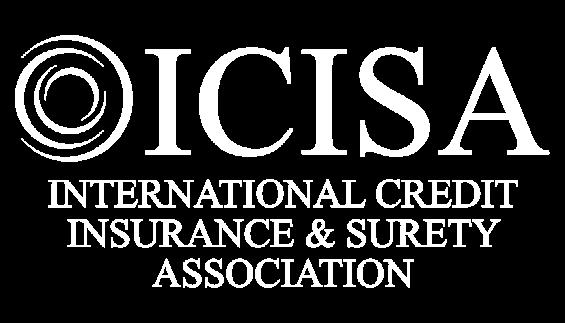


















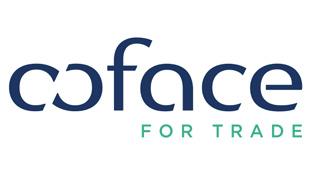
















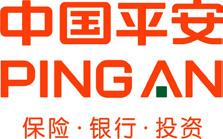


















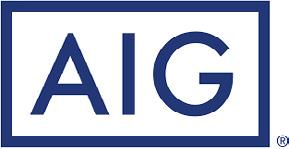
26 | The ICISA INSIDER | April 2023 ICISA Members Evert van de Beekstraat 354 1118 CZ Schiphol The Netherlands +31 (0)20 625 4115 secretariat@icisa.org www.icisa.org ICISA Registered Number: 64391736





 Richard
Richard





 Author: Alexis Garatti, Allianz Trade
Author: Alexis Garatti, Allianz Trade





 An interview with Antoine Ninu and Andre Straja
An interview with Antoine Ninu and Andre Straja




 Author: Mahesh Mistry, AM Best
Author: Mahesh Mistry, AM Best



















 Serge Taleb Chief of Staff Company: MS Reinsurance
Serge Taleb Chief of Staff Company: MS Reinsurance





















































